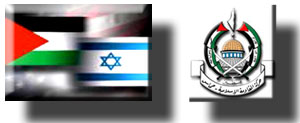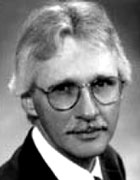FCNNEWSSOURCE

[On January 25, the Islamic Resistance Movement, Hamas won 76 seats of the 132-seat Palestinian Legislative Council in a landslide victory over the ruling Fatah party. The Final Call explores three differing viewpoints that provide insight into the volatile mixture of ideas and attitudes in a region characterized by unpredictability and conflict since Israel’s creation in 1948.]
Daniel McGowan is a professor emeritus at Hobart and William Smith Colleges and the executive director of Deir Yassin Remembered, a non-profit organization committed to justice for the Palestinian people. He is a proponent of one-state-with-equal-rights-of-citizenship-for-all in all of the land now controlled by Israel, including the West Bank and Gaza, and is considered an expert on Middle East/ Palestinian relations.
- Publisher: ‘Palestine could become rallying point of oppressed people’ (FCN, 2-16-2006)
- Palestinian activist: ‘There will be as much peace as Israel will allow’ (FCN, 2-16-2006)

FC: What are your thoughts on what is being reported as a clear landslide victory by Hamas? Were the results a vote for Hamas and against the current Palestinian Authority leadership, or a demonstration against the American/Israeli alliance in foreign policy?
DM: It is not a surprise given the corruption and ineptitude of the Palestinian Authority and the weak leadership of Mahmoud Abbas. But Israel and the United States are mostly to blame because they refused to accept Abbas as a leader and work with him to establish a viable Palestinian state. Instead, Israel exerted its hegemony and worked to grab as much of the West Bank as it could digest–even beyond what it needed for over 450,000 illegal Jewish colonists who have been settling there since 1967. The U.S. simply ignores Israeli expansion or agrees with it for political reasons and capitulation to Jewish power.
Moreover, although the U.S. claims to want democracy and fair elections, it spent over $2 million to improve the image of the Palestinian Authority and hurt the image of Hamas in the weeks just prior to the election. While most Americans are unaware of this, most Palestinians were not and they saw it as unfair and biased. They resisted this outside pressure by overwhelmingly voting for Hamas.
As a footnote, it is ironic that the United States objects to a fundamentalist party coming out ahead when it was the fundamentalist Christians who tipped the vote here for [George W.] Bush.
FC: Likud leader Benjamin Netanyahu was quoted by the Jerusalem Post as stating: “Before our very eyes, Hamastan has been created.” What do the results portend for the Israeli government especially given the instability and poor health of Ariel Sharon of the Kadima Party?
DM: Netanyahu represents the Likud Party, which grew out of the Jewish terrorist group known as the Irgun. He has himself to thank, in part, since Israel supported and encouraged Hamas as an alternative to Fatah when Arafat returned from Tunisia.
FC: Can you clarify for us the “two state” solution that is supposedly being advocated by George Bush, why it seems plausible to some and opposed by others?
DM: Within the borders controlled by Israel today, including the West Bank, Gaza and the Golan Heights, over half the people are not Jews. Yet the Zionists, both Jewish Zionists and Christian ones, like Pat Robertson and George Bush, are wedded to the idea of a Jewish state called Israel. It would be far more “American” for the United States to endorse and support the idea of one state (call it Israel or Palestine or both or “Isratine” or whatever), one country with equal rights of citizenship for all. But such democratic equality flies in the face of a special state for Jews or a state in which Jews have rights denied to others.
FC: Will Hamas be forced to back down on some of the more strident rhetoric and positions toward Israel?
DM: Like other terrorist groups, including the Zionist Irgun and the Stern gang and the ANC in South Africa, the Hamas rhetoric will change if they are permitted to be brought into the government.
FC: Thank you.
Interviews conducted by Final Call Online
Correspondent Ashahed Muhammad












